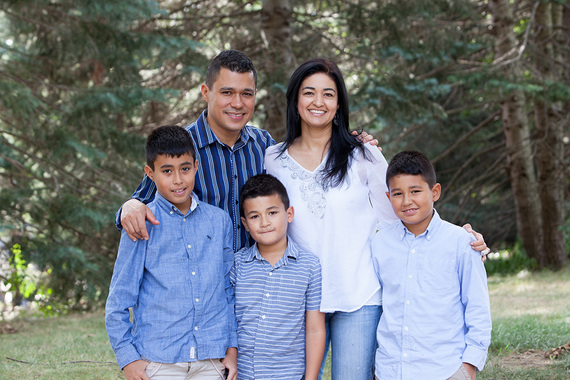Every week at FII, we hear stories about the efforts thousands of people take to improve their lives, and help one another. At present, it is the embedded belief of many in the social sector that families need programs and policies to affect lasting change, and that the success of our FII families is the exception. In fact, the exact opposite is true. I have seen FII families accomplish more effective and sustained change without direction from FII staff, and more than I was able to accomplish for them when running social services programs for 20 years.
From time to time, we will share the stories of ordinary families and their accomplishments, resulting from encouragement and access to a just a fraction of what is spent on most programs and policies. These stories are not the exceptions, but the rule. They demonstrate that those most in need not only keep their lives together, but that they do so while still managing to clean our homes and tidy our lawns! These FII family stories convince me of the necessity to build supports based on what families initiate themselves, not programs designed by professionals.
We have learned that...
- Families in San Francisco are starting a cleaning business by leveraging the experience of the eight group members. Each group member will be responsible for areas such as marketing, childcare, licenses, buying products, etc.
- Families in Boston organized a College Fair for teens in their community. Parents and youth shared their experiences applying to college and for financial aid.
- Families in New Orleans have pulled together their financial resources, crafts and skills to collectively launch Oya Market (www.oyamarketnola.com) -an indoor market that houses products and services from many local talented and innovative artists and artisans.
- Another family in New Orleans is opening a "snowball" business ("snow cones" in other parts of the country.) The shop will engage local youth and expose them to financial education.
- Families in San Francisco formed a social club to learn how to bake. They each started selling their baked goods and have decided to pull their clients together under one business. Each member brings a talent to the business, baking, marketing, procurement of molds and materials, etc.
- A family in Boston developed her own health plan and lost 15lbs using her urban garden. This inspired other FII families, who not only started eating healthier food but saved money as well. They saw how they went from paying $1.99 for an organic cucumber to paying $2.99 for seeds that produced over 20 cucumbers, which they now share.
- Families in Oakland have rallied behind a group member that has been diagnosed with cancer. Her peers are providing emotional support, keeping her company, bringing her food and making sure she goes to her medical appointments.
- Families in Detroit are starting their own youth mentorship groups to address issues of bullying and engaging men to talk and connect with younger men.
- A family in Oakland hosted a "Girls Night Out" for entrepreneurs. Twenty-seven women attended the first event to network, share experiences and resources. They now plan to host the event every quarter.
- Families in Boston held a raffle to fundraise and help a group member with her expenses while going through chemotherapy. The group member with cancer did not want to feel like a charity case, so the group worked together to make sure the fundraiser was sensitive to her wishes.
- A family in Albuquerque decided to get off of subsidies due to frustration with how the providers made her feel. It was difficult, but the husband has been doing more side jobs, which is helping. His wife is volunteering at a health workshop and learning to make nutritional smoothies. The family is now relieved of the stress of reapplying for benefits, showing documentation and "feeling belittled." FII group members are supportive of her decision.
FII families can see what the families in any of our cities are doing, and become inspired to do something similar. They seek help and advice from one another. Expectations and patterns change, for the better.
Programs cannot replicate the innovation, ingenuity and cultural appropriateness of what families do for themselves. Further, programs cannot provide the ongoing emotional support that peers provide. In most of these stories, FII's resources played a minimal role. People do these things because they "own" them and want to lead their own change.
Doesn't everyone?

